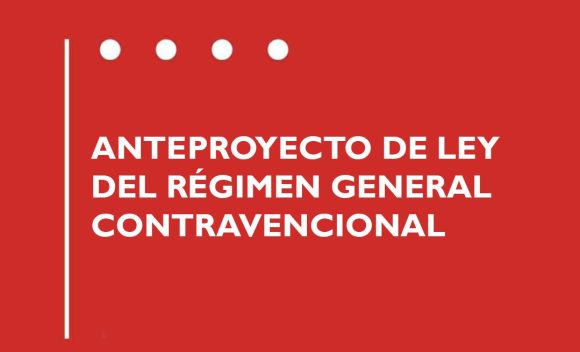Two draft laws foreseen in the Legislative Schedule – on the General Contraventional Regime and the Civil Registry – are available for the process of specialised consultation with various institutions in the country, academics, national and foreign experts, as well as with the citizenry in order to obtain a higher quality proposal.
The objective of the General Contraventional Regime is to establish provisions to sanction conduct considered contraventions in view of their low social harm.
Its provisions, according to the website of the Ministry of Justice (Minjus), apply to all contraventional regimes that are established in regulations, sectoral areas of public administration, and allow for their updating in accordance with the general principles it establishes, in order to guarantee uniformity, better coherence in their regulation, greater general knowledge on the subject and the resulting legal certainty.
This draft bill, it is argued, is congruent with the Constitution of the Republic, which in Article 90 endorses the responsibility of citizens in the exercise of the rights and freedoms provided for therein, and establishes, among others, the duty of Cuban citizens to comply with the Constitution and other legal norms.
The Ministry of Justice has set up a channel for interested parties to issue criteria, considerations or recommendations by emailing contravenciones@minjus.gob.cu.
On the other hand, the legislative change in the area of Civil Registry obeys the need to adapt it to the development of constitutional, personal and family rights that have been introduced or modified in the last five years in Cuba, thus increasing the catalogue of facts, acts and circumstances with registry effects in order to promote preventive legal security.
They emphasise that it is also influenced by the fact that the current Law No. 51 of the Civil Status Registry dates back to 1985, and therefore needs to be updated, due to the approval of other legal norms, such as the Family Code, and the use of new information and communication technologies, which impose the obligation of a legislative change in this area.
According to the Minjus, the new draft of the Civil Registry defends the right enshrined in Article 97 of the Constitution of the Republic, which recognises the right of individuals to protect their personal data in registers, files, databases and information of a public nature, as well as to request its non-disclosure and to acquire its correction, rectification, modification, updating or cancellation.
Criteria, considerations and recommendations about this can be sent by e-mail to registrocivil@minjus.gob.cu.
(Taken from Granma)




